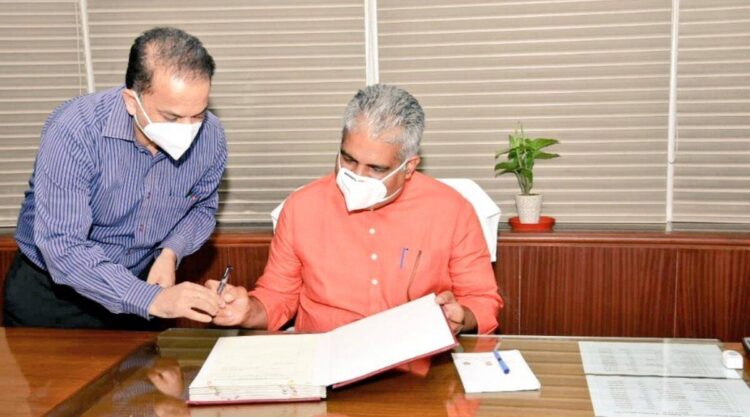The Ministry of Environment, Forests and Climate Change (MoEFCC) has launched an amnesty scheme for infrastructure and industrial initiatives that have violated environmental clearance norms, reported the HT Times.
The Standard Operating Procedure (SOP) released by the ministry under an office memorandum on July 7 informs that the projects which do not have prior environmental clearance would be stopped and should be “appraised afresh.”
People who are part of the projects without environmental clearance would also have to pay a penalty. The memorandum also has provision to completely demolish industries that shouldn’t have gotten the environmental clearance because of the environmental or ecological footprint it is leaving.

Environmental experts, however, are not happy with the notification. They believe that this is a political move to achieve the similar action initiated by the draft environment impact assessment notification 2020 (EIA) in dealing with violation cases. The EIA received over 2 million comments and criticism over their proposal.
The National Green Tribunal ordered the ministry to issue penalties and an SOP for green violations earlier this year. This release by the ministry on July 7 is a result of the same, said The Indian Express.
Manju Menon, senior fellow, Centre for Policy Research, said, “This will be the largest regularisation scheme for projects that have operated illegally in India and added to our total environmental and social burdens.
It is understandable at one level that the government wants to do this because the environmental regulatory process has lost all legitimacy in India, and thousands of projects operate in different states without any environmental approval.
Even though we have environmental institutions that offer approvals on a platter, projects don’t come forward to take approvals. That must hurt the government’s sense of power and control very much.”

The Standard Operating Procedure (SOP) refer to two categories of green violations, according to The Indian Express:
- ‘Violations’ would mark cases where construction work, including expansion of an existing project, has started without receiving the requisite environmental clearance.
- ‘Non-Compliance’ would mark projects that have gotten the environmental clearance, but it violates the approval norms.
Under the category of the violation, there are projects which could be marked as “permissible,” but there are rules that it has to follow. The projects will have to develop a remediation plan, and its value will be judged on the basis of it.
The project also needs to “submit a bank guarantee equivalent to the remediation plan and a natural and community resource augmentation plan to the Centre or State Pollution Control Boards.” The bank guarantee will be freed once the remediation plan becomes actionable, said the HT Times.
Centre for Policy Research’s Kanchi Kohli expressed her doubt on the feasibility of this scheme. She said, “Firstly, we find that this is an acknowledgement by the ministry that despite EIA rules being in place for seven years, most projects seem to continue to fall outside the prescribed environmental norms and are therefore violators. Our concern is also that this is the institutionalising of violations based on the polluter pays norm.
Unlike in 2017, this is not an amnesty scheme but actually makes the process of first violating and then paying a penalty and getting away with the violation a routine affair, which is in direct contradiction to the premise of the EIA. We feel that such a directive will allow violations to continue on a regular basis.”

When asked if the memorandum is an attempt to make specific clauses in the EIA notification highly condemned by the public functional even before the notification is passed, a senior environment ministry official responded saying, “As you can see, the office memorandum has been issued in response to an NGT order. We have nothing further to add. We have referred to the NGT order in the memorandum also.”
Also Read: Smart Technologies Doesn’t Make You Dumb, A New Study
















